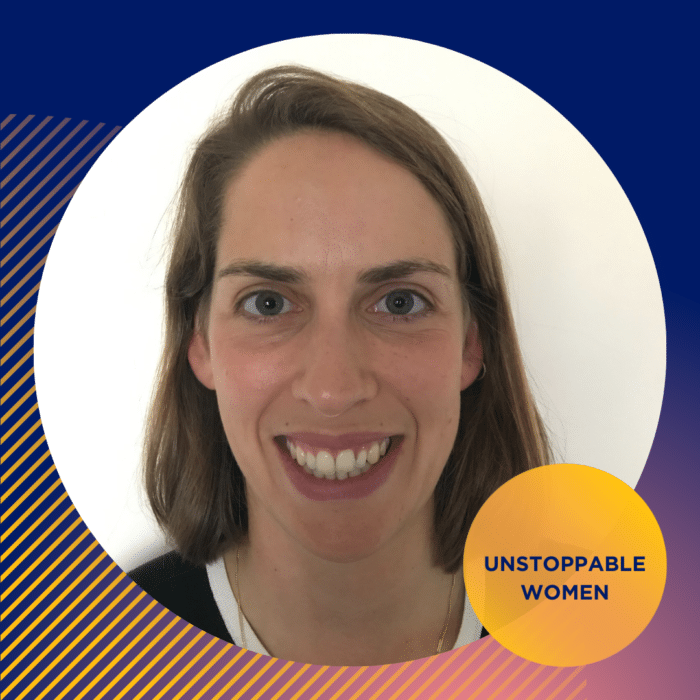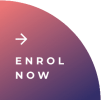Career journey
After graduating from Strathcona in 2008, I completed a Bachelor of Arts at The University of Melbourne with a focus on languages and linguistics. This led me to an Honours year working on recording a language spoken in a remote area in the west of the Northern Territory. I found research a bit lonely, so decided to try my luck applying for the Teach for Australia program, a two-year internship-style program which allows new educators to study secondary teaching while teaching a part-time load in secondary school. I was successful and began my teaching career in Warrnambool, on the southwest coast of Victoria. After my first two years, I pressed pause on working and completed my Master of Teaching at the University of Bordeaux, France. In my thesis, I found that young people across France and Australia wanted one thing from their teachers: positive relationships with people who are kind, funny and who listen. I came back to Australia with a new zest to be that teacher for my students. I moved to Katherine in the Northern Territory to teach for three years, upskilling along the way with a Graduate Certificate in Developmental Trauma. I found I was really passionate about engaging young people who were feeling excluded from the educational system. This brought me back to Melbourne to work at St Joseph’s Flexible Learning Centre, North Melbourne with a diverse cohort of 12-25 year olds who have disengaged from mainstream education. I work in the specialist classroom with 12-15 year olds with varied disabilities and learning needs including autism, ADHD, ODD (Oppositional Defiance Disorder), and intellectual disabilities.
How did Strathcona prepare you for your chosen career?
My journey at Strathcona had a clear focus on social justice through programs such as the Duke of Edinburgh’s Award and large-scale fundraisers such as the Red Cross Murray Marathon. Strathcona taught me to value the lives, views and experiences of those different to me, and to focus my energies towards enriching and contributing to my community. Alongside this, the teaching and learning experience at Strathcona was highly relational, and my teachers took a genuine interest in the goals of the young women with whom they worked. This was one factor that inspired me to become one such teacher myself.
What did you study?
My Year 12 subjects at Strathcona were focussed on my passion as a young person for languages. Through my Bachelor of Arts at the University of Melbourne, I studied double majors in Italian and Linguistics, with the addition of a Diploma in French. Many of the examples, articles and assignments for my linguistics major were drawn from Aboriginal and Torres Strait Islander languages spoken across Australia. This led me to complete my Honours thesis documenting one part of the syntax (grammar) of Murrinh-Patha, spoken in Wadeye in the remote west of the Northern Territory. Once I’d pivoted to teaching, I completed a Master of Teaching (Secondary) in two parts (initially a Diploma of Teaching through Teach for Australia, and then an additional 6 months in France to obtain my Masters). I have upskilled a number of times in my career, previously completing a Graduate Certificate in Developmental Trauma, to allow me to work therapeutically with young people who have experienced childhood trauma, and I am currently undertaking a Graduate Certificate in Primary Mathematics Education to upskill in the teaching of mathematics.
What was the major influence on your career path?
I think we are all influenced in complex ways by a mixture of our backgrounds, the unique way we are in the world, and our life experiences. As such, it’s difficult for me to isolate one major influence on my career path. My family came to Australia through a complicated journey from besieged Sarajevo, Bosnia via England as refugees to Melbourne on skilled migrant visas. The fact that my parents’ education essentially saved our lives by facilitating our access to Australian visas meant that I have grown up believing that education literally changes lives. Teaching in the Northern Territory prompted my move to alternative educational settings and an interest in servicing young people who may have experienced childhood trauma or who are otherwise disadvantaged in their education.
When did you decide that this is what you wanted to do?
I basically completed a whole 5-year university degree, my Bachelor of Arts with a double-major, diploma and honours, before I worked out what I wanted to do. Even then, once I had started teaching, I still felt like I was ‘trying it out’ for a while. It took me a long time to become confident in the field and to work out that this career was ‘for me’. I moved jobs every few years and have only really in the past few years, after over 5 years in my career, found my ‘niche’. Finding a role, team and community that I have clicked with at work in the past few years has confirmed for me that this is what I want to do.
What are your career highlights?
In my current specialist setting, I have taught teenagers to read from scratch, helped young people to make their first friend, and been part of making everyday attenders out of young people who have missed years of school. The small wins are career highlights when working in education. I will never forget experiences like taking kids who can barely float on a ‘swimming with the seals’ experience, or taking rural students interstate and overseas, but there are memorable moments almost every day in this career.
What day-to-day thing do you enjoy about your job?
So many things! I love that I laugh, play games, cook and read for a living. I love that I for the most part plan my own day, and move in a rhythm and routine that I plan. Each day is different, but I know really well what my job is, what is expected of me, how to tell if I’m doing well, what is happening at each moment of the day and who to go to for help if I need it.
What core attributes do you need for your chosen career?
Teaching is less about content knowledge, and more about interpersonal skills. Teaching in a special education setting is about interpersonal skills, social-emotional knowledge, perspective and patience.
What advice would you give to someone looking to start in your industry?
Do it! It’s a very rewarding career, and we will always need great teachers. Spend time in schools and with young people; volunteer, tutor, babysit. I’d highly recommend gaining experience working with young people with disabilities and additional needs; there is a great need for innovative teachers in these settings and the sector is often overlooked. You end up being part of a community of like-mind individuals working towards a common cause.


